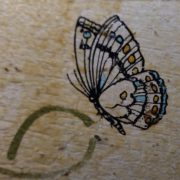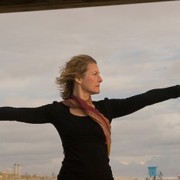Compassion for Survivors of Trauma – a New View of Substance Use Disorder/Addiction!
I remember being assigned to read the book by Dr. Gabor Maté, In the Realm of Hungry Ghosts, while in graduate school and simply feeling gratitude, compassion and validation afterwards. I never believed in the medical model of addiction that describes the symptom of addiction as a chronic disease of the brain, even suggesting a genetic component to the disease, implying that if my parent(s) had addictions, most likely I would too. Now, don’t get me wrong, the brains of people who struggle with addiction are different, yet those changes are created as a response to the adverse childhood experiences (AKA TRAUMA) these people survived. And if your parents suffered from addictions when you were growing up, that experience is traumatic to a child!
I’ve written before about the impact of adverse childhood experiences, especially on physical health later in life as well as addiction; however, I felt compelled to revisit it again when I learned of research that found over 96% of the study participants suffering from substance use disorders, including prescription opioids, nicotine, and cocaine, had trauma histories. When comparing the groups based upon their drug of choice, the prescription opiate group reported more traumatic childhood experiences than the other groups and a younger age of their first adverse childhood event. So, when you learn about the underlying dynamics associated with substance use, the thought of “Just Say No” to drugs seems crazy!
Trauma comes in many packages and I’m grateful that the new California Surgeon General (Dr. Nadine Burke Harris) is focusing on early childhood, health equity and Adverse Childhood Experiences and toxic stress as her key priorities. (For more information on the ACEs Aware initiative, visit www.ACEsAware.org.) It is time to stop blaming the victims and participate in bringing this information forward in order to educate. What we don’t know, we don’t know. However, once we know better, we can do better. With this knowledge, we can bring more empathy and compassion in our interactions with people that struggle with substances. We can take extra steps to explain this new research to them, validating their experiences and bringing them hope that they can heal from these past traumatic experiences and release their attachment to something that is harmful to them. We can empower them to explore various healing modalities, such as psychotherapy, neurofeedback, meditation, hypnosis, guided imagery, and expressive arts, such as yoga, writing and drawing, all of which have been shown to support post-traumatic growth.
To read more about this research, click on the box below:





